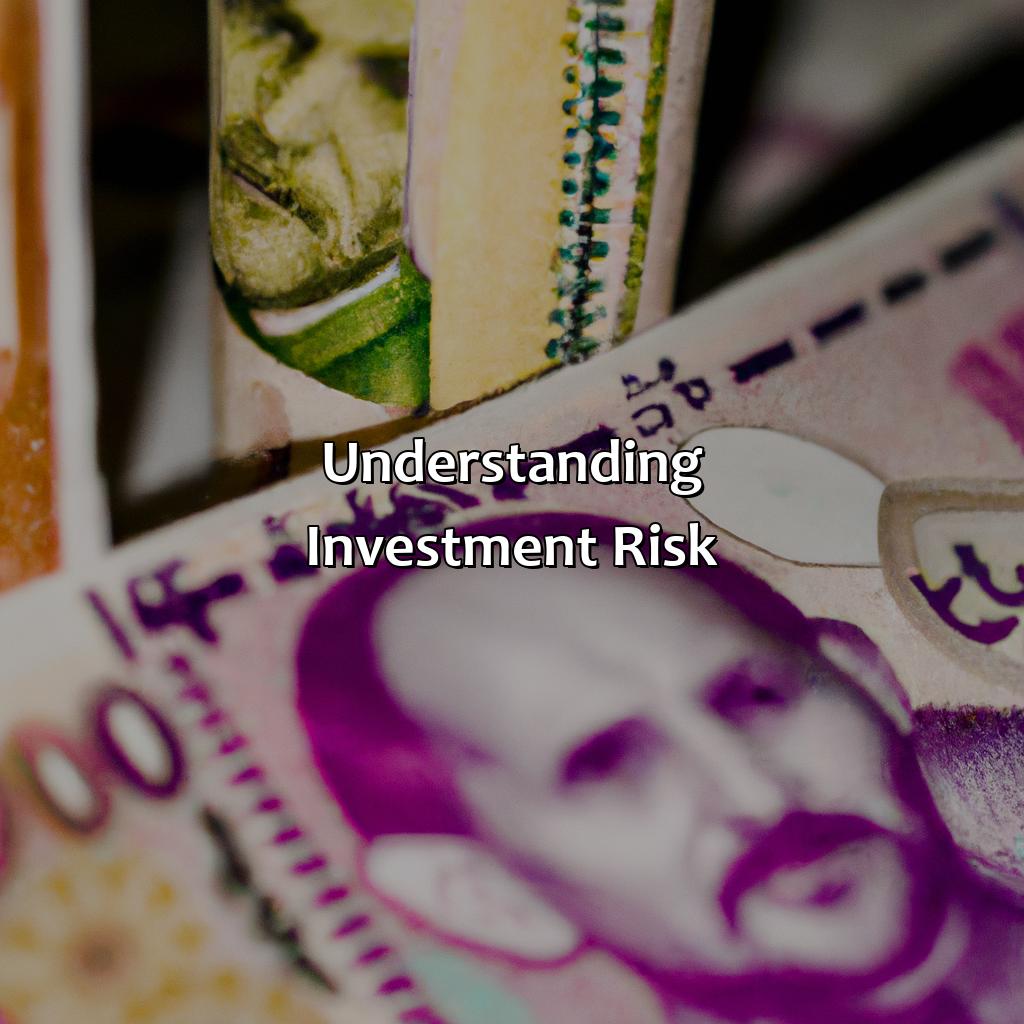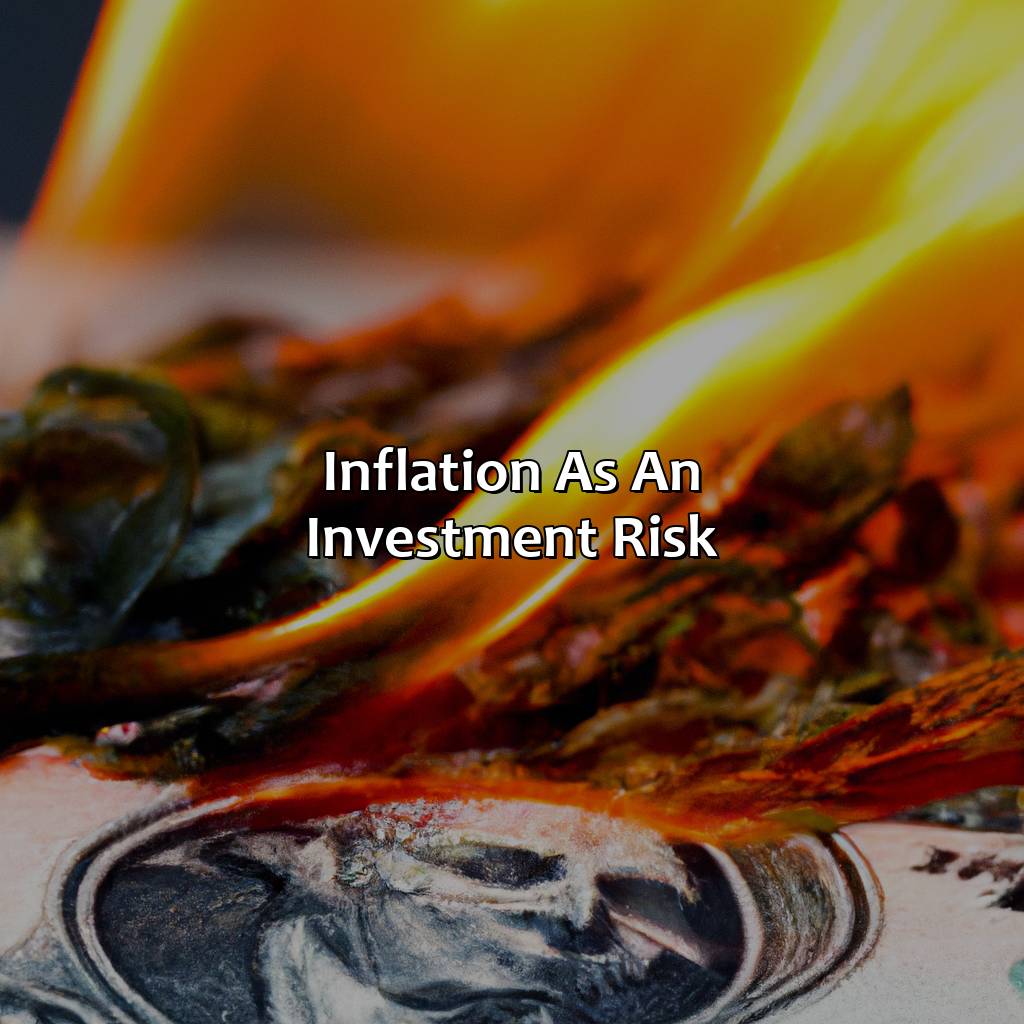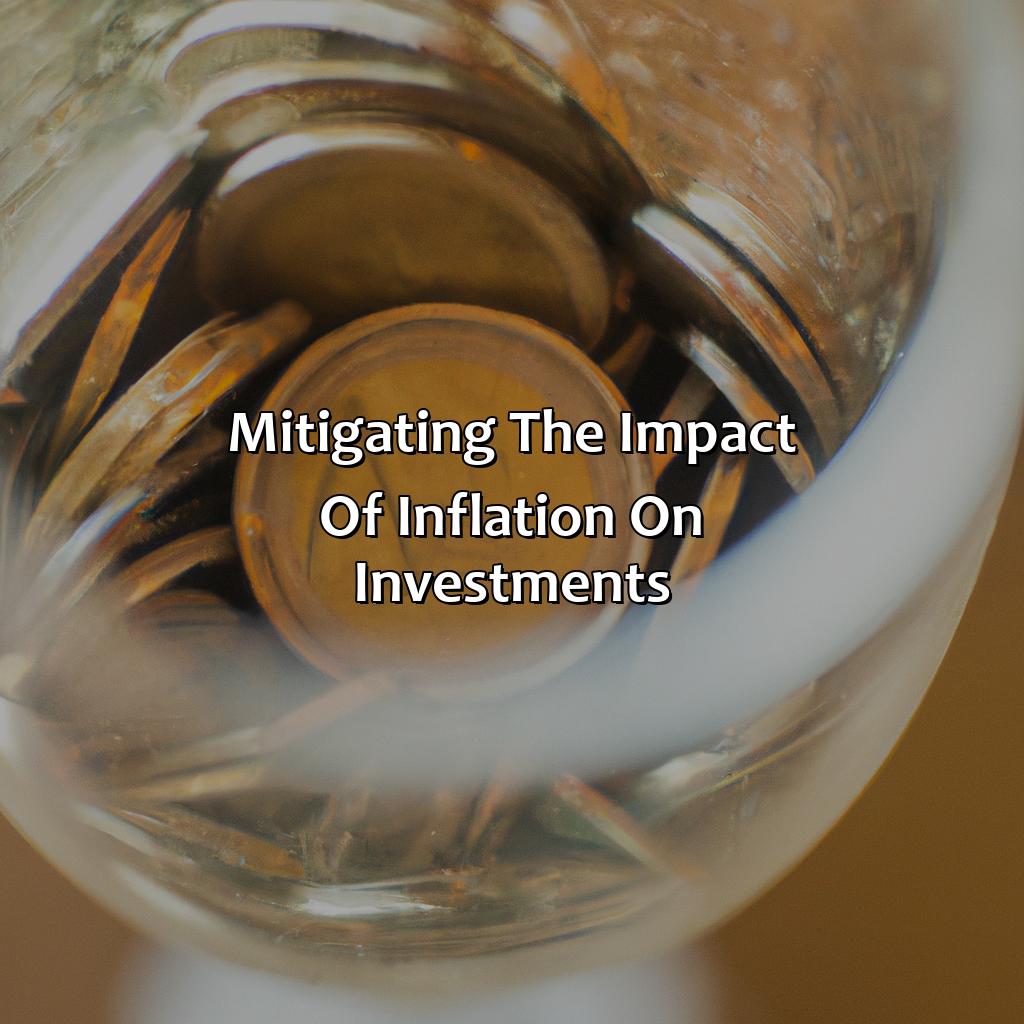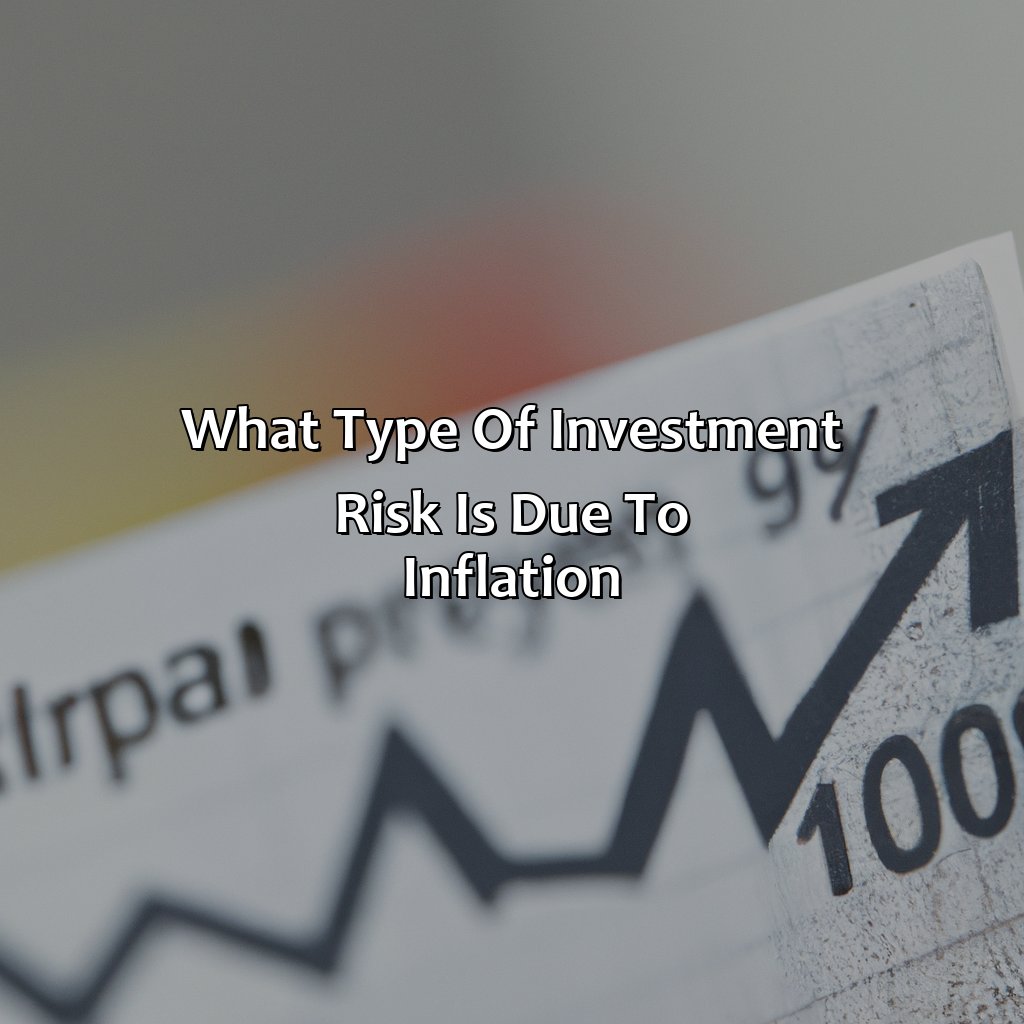What Type Of Investment Risk Is Due To Inflation?
Key Takeaway:
- Investment risk due to inflation arises when the purchasing power of money decreases over time, reducing the real value of investments and income.
- Inflation can be caused by a variety of factors, including changes in the money supply, government policies, and international events.
- To mitigate the impact of inflation on investments, investors can consider investing in inflation-protected securities, diversifying and allocating assets across different asset classes, and investing in real estate.
Are you worried that inflation may impact your investments? Knowing the different types of investment risk associated with inflation can help protect your financial goals. You have the power to make informed decisions with this guide to understanding inflation risk.
Understanding Investment Risk
Investment risk can be affected by various factors, including inflation. Inflation risk refers to the decline in purchasing power of currency caused by the increase in the general level of prices. This can lead to a reduction in the real value of investments, causing a decrease in returns. Investors can mitigate this risk by investing in assets that provide returns that keep pace with inflation, such as stocks, real estate, and commodities.
In addition, inflation risk can vary based on the duration of the investment. Short-term investments are generally more susceptible to inflation risk as they offer lower returns, while longer-term investments tend to provide higher returns that can better withstand the effects of inflation.
When it comes to investment risk, it is important to consider all potential factors that could impact the value of an investment. By understanding and managing inflation risk, investors can make informed decisions that align with their financial goals and risk tolerance.
For example, during the 1970s, inflation in the United States increased dramatically, with prices rising as much as 15% per year. This had a significant impact on investment returns, causing investors to seek out assets that could provide protection against inflation. As a result, stocks, real estate, and commodities became popular investment choices during this time period as they offered returns that kept pace with inflation.

Image credits: retiregenz.com by James Duncun
Inflation as an Investment Risk
Investment Risks Arising from Inflation
Inflation poses a significant investment risk as it decreases the purchasing power of money over time. Investors face several inflation-related challenges, including erosion of returns, low-interest rates, and unexpected losses. Adjusting for inflation is risky, as the inflation rate is variable and ever-changing. It is essential to assess inflation when evaluating the worth of an investment.
When inflation rates increase, the returns on investments may not keep up, leaving investors with lower real returns. This risk applies to all types of investments, including bonds, stocks, commodities, and others. Inflation can also cause instability and uncertainties, as it creates unpredictable price movements, making it hard to determine the value of investments. Additionally, inflation can lead to negative impacts on company earnings, resulting in a decline in their stock price.
Inflation’s impact on investment varies based on location, time, and the type of investment. An example of an inflation risk is the 1970s stagflation period. During this time, interest rates increased, and stocks and bonds posted negative returns. Investing in anti-inflationary assets, such as gold and real estate, can help combat inflation risks.

Image credits: retiregenz.com by Adam Jones
Mitigating the Impact of Inflation on Investments
Investment Risk Due to Inflation
For investors, inflation is a significant risk that can erode the real value of their investments. To mitigate the impact of inflation on investments, investors must adopt a strategic approach.
Investors can mitigate the impact of inflation on their investments by choosing inflation-resistant assets, such as Treasury Inflation Protected Securities (TIPS), commodities and real estate. They should also diversify their portfolios with different asset classes to avoid overdependence on any one asset.
Investors can also consider investing in inflation-hedging industries, such as energy, utilities, and healthcare. They must also be mindful of the inflation rate and adjust their investment strategies accordingly.
To avoid missing out on returns, investors must take a long-term perspective on their investments and avoid making rash decisions during short-term inflationary periods. A sound strategy should be to hold onto their investments, rather than reacting to short-term fluctuations in the market. Investors must be disciplined and patient to reap the rewards of their investments.

Image credits: retiregenz.com by Harry Duncun
Five Facts About Investment Risk Due to Inflation:
- ✅ Inflation risk refers to the potential loss of purchasing power due to the rising prices of goods and services over time. (Source: Investopedia)
- ✅ Inflation can decrease the returns on investments like cash and bonds. (Source: The Balance)
- ✅ Investments in real assets, like real estate and commodities, can provide a hedge against inflation. (Source: NerdWallet)
- ✅ Historically, stocks have outpaced the rate of inflation over the long term. (Source: Forbes)
- ✅ One of the ways to mitigate inflation risk is to diversify your portfolio across different asset classes and sectors. (Source: Charles Schwab)
FAQs about What Type Of Investment Risk Is Due To Inflation?
What type of investment risk is due to inflation?
The type of investment risk that is due to inflation is known as inflation risk. This refers to the risk that the value of an investment will be eroded over time due to inflation.
How does inflation risk affect investments?
Inflation risk can affect investments in various ways. For example, it can reduce the real return on an investment, making it less attractive to investors. It can also increase the cost of borrowing, which can impact the overall profitability of an investment.
What types of investments are most affected by inflation risk?
Typically, investments that are not inflation-protected are most affected by inflation risk. Examples of such investments include fixed-income securities, such as bonds, and money market funds.
How can investors protect themselves against inflation risk?
Investors can protect themselves against inflation risk by investing in inflation-protected securities, such as Treasury Inflation-Protected Securities (TIPS) or real estate. These types of investments are designed to keep pace with inflation, helping investors maintain the purchasing power of their investments.
What strategies are used to manage inflation risk?
Some strategies that are used to manage inflation risk include diversifying investments, utilizing asset allocation strategies, and investing in commodities or other assets that have historically performed well during periods of inflation.
What is the difference between inflation risk and interest rate risk?
Inflation risk and interest rate risk are related, but they are not the same. Inflation risk refers to the risk that the value of an investment will be eroded over time due to inflation. Interest rate risk, on the other hand, refers to the risk that changes in interest rates will affect the value of an investment. While these risks are related, they can impact investments differently and require different strategies to manage.
